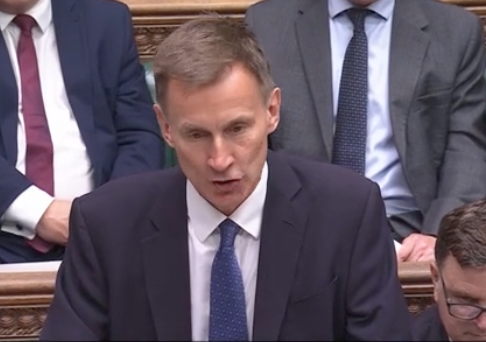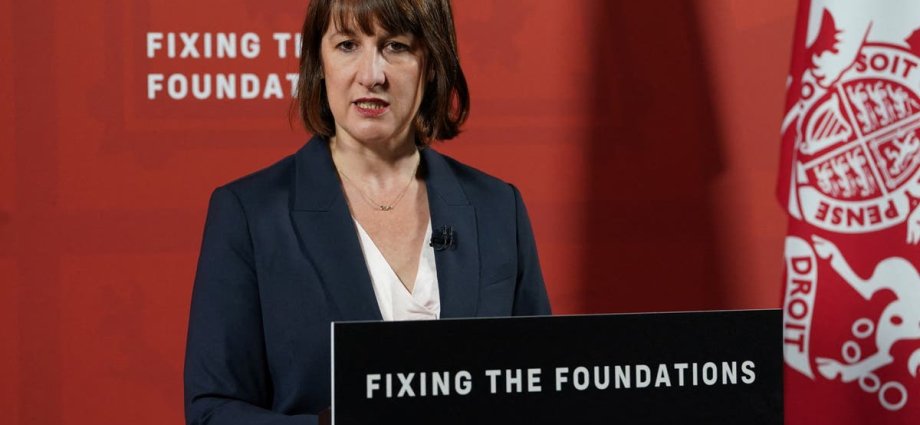Rachel Reeves has accused Jeremy Hunt of lying about the state of the public finances after revealing a £22bn hole in the public finances.
The chancellor branded her predecessor as a liar, in her strongest condemnation yet of Mr Hunt and Rishi Sunak’s Conservative Party.
MPs are barred from referring to other members as liars in the chamber as it is deemed unparliamentary, but even outside of the commons it is unusual for senior politicians in the UK to accuse one another directly of lying.
“It is even worse than that, because during the general election campaign I was clear everything I put forward was fully funded,” she told Sky News on Tuesday.

And she contrasted her approach with the Conservatives, who promised further tax cuts and greater spending on programmes like national service. “All the while they knew there was already a £22bn black hole in the public finances, it is beyond reckless and irresponsible,” Ms Reeves added.
She compared the major spending black hole to Conservative scandals such as Partygate and the handling of Covid contracts. “When trust at politics is at an all time low… to mislead people in that way during a general election about what was possible is unforgivable,” Ms Reeves said.
“They should never be allowed to have their hands on power and our public finances again,” she added.
It came after Ms Reeves cut winter fuel payments for 10m pensioners as part of a drive to plug the £22bn hole left in the country’s balance sheet by the Conservatives.

In a statement to Parliament, she set out “immediate action” to address the shortfall by £5.5bn, with the rest of the gap to be addressed at a budget on October 30.
Other savings included:
- Ending the Rwanda migration scheme, saving £800 million this year;
- Cancelling the Stonehenge Tunnel, A27 schemes and plans to restore some previously closed railway lines, saving £785 million next year;
- Ending non-essential spending by departments on consultancy services and communications, saving £600 million this year;
- Abandoning Rishi Sunak’s “Advanced British Standard” in education, arguing the former prime minister “didn’t put aside a single penny to pay for it”, saving £185 million next year.
But, hitting back after Ms Reeves described him as a liar, Mr Hunt said “this is a very disappointing way for the new government to do politics”.
“Just four days earlier, the estimates of the need for public spending had been submitted to parliament, signed off by the Labour government and top civil servants, and they did not talk about any black hole at all,” the shadow chancellor said.
He told BBC Radio 4’s Today programme: “I think what will make most people smell a rat, this morning, is that on the one hand Rachel Reeves says there is a big black hole, and on the other hand she finds 22 per cent, 10 times inflation, to pay junior doctors and nearly three times inflation for every other public sector worker.”
On Monday Ms Reeves was forced to defend limiting winter fuel payments for pensioners while hiking junior doctors’ pay by more than a fifth over two years. She also awarded pay rises of between 5 and 6 per cent across the public sector.
She said the disruption caused by strikes affects everybody, with the cancellation of NHS appointments affecting the elderly the most.
“We are bringing an end to the era of industrial disputes in our public services, we are bringing an end to the era where people wait months and in many cases years for vital hospital appointments,” she said.
And, asked about whether she was enjoying the job so far, Ms Reeves said her time as chancellor has been the first three and a half weeks of her 14-year career not spent in opposition. “For the first time, I have actually been able to do things, rather than just say them,” she said.
She added: “To be able to make change is profoundly rewarding, and to be able to start to grow our economy and get us out of the mess we have inherited… I am proud of our record in the last three and a half weeks, but we have only just got started.”











